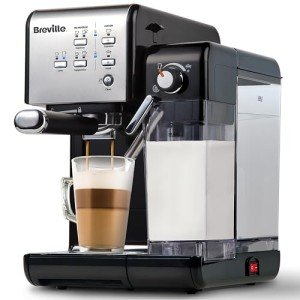Best Espresso Machines: A Comprehensive Guide
Espresso machines have actually ended up being a staple in coffee culture, bring in enthusiasts and casual drinkers alike. The best shot of espresso can elevate the coffee experience, and choosing the ideal machine is important for achieving this goal. This article digs into the world of espresso machines, checking out a few of the very best choices readily available on the market today. It will cover the types of machines, crucial features to consider, a comparison table, and often asked concerns.
Types of Espresso Machines
Before venturing into particular products, it's necessary to comprehend the numerous kinds of espresso machines available:
- Manual Machines: Also called lever machines, these need the user to by hand manage the pressure and flow of water. They offer a hands-on experience but need more skill.
- Semi-Automatic Machines: These machines automate the pressure and temperature level, while enabling users to control the shot timing. They are perfect for those who want to take control without requiring excessive effort.
- Automatic Machines: These gadgets automate the developing procedure entirely; users merely choose the size and strength of the shot. Great for beginners.
- Super-Automatic Machines: This type grinds the beans, tamps, brews, and even froths milk immediately. They're exceptional for convenience, making them ideal for those who desire speed without sacrificing quality.
- Capsule Machines: Utilizing pre-packaged coffee pods, these are the easiest machines for making espresso. While practical, they frequently lack the depth of taste discovered in newly ground beans.
Secret Features to Consider
When looking for the best espresso machine, several important functions should guide your decision:
- Pressure: The ideal pressure for an espresso machine is 9 bars. This pressure is important for drawing out tastes effectively.
- Temperature level Control: Consistent water temperature is crucial for a good espresso. Try to find machines with PID (Proportional Integral Derivative) temperature control.
- Build Quality: Machines made from high-quality products tend to last longer and offer a much better experience.
- Size and Footprint: Consider your available counter space. Some machines are compact, while others need substantial area.
- Grinder Quality: An integrated grinder offers convenience, but the quality of the grinder affects the final taste. Doser or doserless types alter the taste profile substantially.
- Ease of Use and Cleaning: Consider how simple the machine is to tidy and keep. Machines with detachable parts normally use easier cleansing.
Contrast Table of Best Espresso Machines
Here's a comparison table showcasing a few of the most suggested espresso machines based on numerous user reviews and skilled rankings:
| Espresso Machine | Type | Pressure (Bars) | PID Control | Grinder Type | Price Range |
|---|---|---|---|---|---|
| Breville Barista Express | Semi-Automatic | 9 | Yes | Conical burr grinder | ₤ 600 - ₤ 700 |
| De'Longhi EC155 | Manual | 15 | No | No grinder | ₤ 100 - ₤ 150 |
| Rancilio Silvia | Semi-Automatic | 9 | No | No grinder | ₤ 700 - ₤ 800 |
| Saeco Xelsis | Super-Automatic | 15 | Yes | Integrated grinder | ₤ 1,000 - ₤ 1,500 |
| Nespresso VertuoPlus | Pill | N/A | No | No grinder | ₤ 150 - ₤ 200 |
| Gaggia Classic Pro | Semi-Automatic | 9 | Yes | No grinder | ₤ 400 - ₤ 500 |
Summary of Best Espresso Machines
- For Beginners: The De'Longhi EC155 is an outstanding starting point due to its affordable cost and ease of use.
- For Serious Enthusiasts: The Rancilio Silvia provides a balance in between quality and control, interesting those who wish to improve their barista skills.
- For Convenience: The Saeco Xelsis stands out as a top super-automatic alternative, best for users seeking maximum ease without compromising taste.
Regularly Asked Questions (FAQs)
Q1: What is the very best pressure for extracting espresso?A1: The perfect pressure is 9 bars; this pressure level is optimal for drawing out the flavors in espresso.
Q2: How often should I clean my espresso machine?A2: Regular cleaning is vital. For machines with integrated grinders, it is best to clean them after every use. Deep cleaning needs to be done weekly or monthly depending on usage and design.
Q3: Can I use regular coffee in an espresso machine?A3: Espresso is made from carefully ground coffee, ideally roasted particularly for espresso. While Heat Exchange Espresso Machines can use routine coffee, the taste and extraction might differ.
Q4: How long can my espresso machine last?A4: With proper care and upkeep, a high-quality espresso machine can last several years, even decades.
Q5: What grinder should I use for espresso?A5: A burr grinder is preferable, as it provides consistent grind size which is crucial for proper extraction.
The journey to finding the very best espresso machine can be an amazing one, filled with discovery and potential for developing one's coffee taste buds. Whether selecting the simpleness of a capsule machine or the control of a manual design, understanding the different types and features can greatly boost the experience. With advances in technology and development, there's an appropriate espresso machine for all preferences and skill levels on the market today. Buying the ideal machine not just guarantees fantastic flavor but likewise raises the overall coffee experience.

